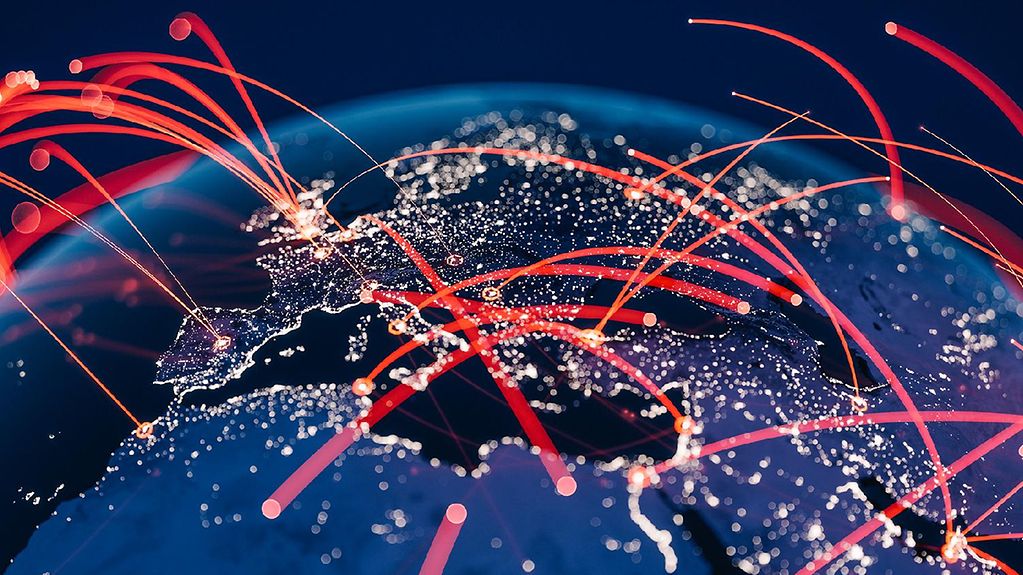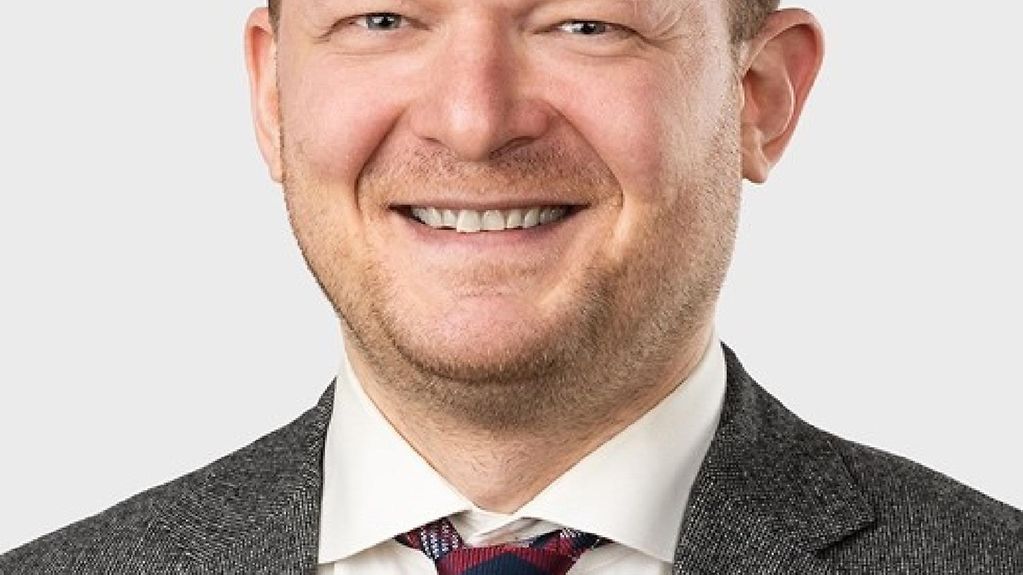Interview about Russian Disinformation
How have developments over the past twelve months been shaped by Russian disinformation? How can we deal with the manipulation of information? These are the issues that Jakub Kalenský, an expert on Russian disinformation, talks about in an interview on the first anniversary of Russia's invasion of Ukraine.
6 min reading time

Jakub Kalenský, an analyst at the Hybrid CoE network in Helsinki, recommends detecting disinformation campaigns and raising people's awareness in advance.
Photo: Getty Images
You have been extensively involved in monitoring, analyzing and at times classifying narratives coming from Russia and regarding the war in Ukraine for many years. We would like to hear about what narratives are especially dominant these days in the context of Russia’s aggressions and how these might have changed in the past year.
Jakub Kalenský: I would say that the narratives probably are the most stable component of Russian disinformation. And this is for a very good reason. Any communication campaign relies on repetition and is more successful when the messages are repeated constantly, reach more people and go deeper into peoples’ minds. Some of the narratives we hear these days have started around late 2013 or early 2014 in line with the annexation of Crimea and invading the Donbass nine years ago.
But some are even older and go back to the Cold War, like accusing the West of everything bad that happens in the world. But even if they are old, it doesn’t make them less dangerous and it proves that they are evaluated by the Kremlin as successful or particularly useful.
Compared to how things were in the Cold War, what has changed about how Russia seeks to exert influence in our current informational climate and what are observations specifically stemming from the last 12 months since the invasion of the entire Ukrainian territory?
Jakub Kalenský: The most obvious change are the technological capabilities. Information laundering used to necessitate accurate planning and placing messages in traditional media outlets and hoping they were published at all. These days, this process happens within hours. It is also much easier to pretend that you are somebody else. Confusing audiences is much easier today. At the same time, some people say, mechanisms of detecting manipulation are easier nowadays, too.
The speed is what makes the big difference to how disinformation was spread before. Other than that, there aren’t that many differences to Cold War times as the emphasis on the confrontation with the West or the democratic countries has even then been really strong. Also, very similar is how much resources flowed and now are going into the campaigns Russia ran and is running. The budget for other issues like health and education declined significantly compared to expenses made for communication and media – just like these days.
What trends are likely to influence the further implementation and reception of disinformation operations?
Jakub Kalenský: I have to admit, I am not an expert on AI. Still, I think new technologies like ChatGPT are prone to make spreading disinformation easier. Nonetheless, detecting false information can also be aided by technology and AI. We just had a recent case in Finland in which a Russian troll tried to discredit NATO and misspelled a word in a tweet. It was actually quite funny – it’s because Finish is such a difficult language and that made the manipulation so visible. But it is likely that AI might help the bad actors to avoid such silly mistakes.

Jakub Kalenský is an analyst, who specialises in Russian disinformation.
Photo: Jakub Kalenský
External threat versus internal effects of disinformation: Could you help us explain why the outside interference on information is so problematic for social cohesion within countries and the European Union?
Jakub Kalenský: Successful disinformation has the ability to limit support to Ukraine. If the narrative that the West is to blame for the war spreads further, this will make it difficult to justify supporting Ukraine in the long run. And it will make Russia’s war crimes significantly easier. There are two dimensions why external interference in the information domain harms our domestic sphere. First, Russia seeks out support within the extremist parts of societies which can lead to more polarization within countries.
Second, the undertakings we are experiencing is dismantling trust in democratic institutions in general. This includes not only the government, but also the media. This in dangerous for handling other crises, like pandemics or financial recessions. For now, however, the most important topic in my opinion is the potential domestic disapproval in supporting Ukraine’s cause in the future.
If we consider that Russia has been successful in harming not only Ukraine but also certain democratic processes, what is your recommendation to democratic societies when it comes to preparing for further campaigns related to information manipulation?
Jakub Kalenský: There are actually differing views on whether Russia has been successful or not – I think, unfortunately, they have been. Even if they are increasingly isolated in the world, which they don’t care about, it remains to be seen how much Russian narratives will alter the outcome of elections in democratic countries and how it might influence countries in the Global South.
In terms of defining countermeasures, I propose looking at four aspects, a four-line approach, to better break down what we can do against disinformation. The first component is the tracking and documentation of disinformation. There is much more we can and should do to ensure a coherent and systematic approach to collecting disinformation and making it visible in real time. Secondly, countermeasures include raising awareness of information manipulation by exposing campaigns and investing in prebunking initiatives.
A third aspect is to engage in media and news literacy and to thereby contribute to more social cohesion. Apart from these three issues that are focused on building resilience, I would like to emphasize the opportunities posed by already existing laws, sanctions, and regulations. The fourth component of fighting disinformation, therefore, is limiting, punishing and deterring actors intentionally spreading false narratives and messages. This also includes organizations. So much more could be done to deter news agencies and media companies, and not only individuals. Only if we address all of these issues together and step up activity in each one of them, can we ensure building useful tools to counter Russian disinformation and upholding support for the Ukrainian cause.
Thank you for taking the time to speak to us.
Jakub Kalenský has joined the Centre’s Hybrid Influence COI as a senior analyst focusing on safeguarding democratic processes. Jakub Kalenský has specialized in disinformation and Russian hybrid activities since 2015 when he joined the newly created East StratCom Task Force in the European Union’s diplomatic service, the EEAS. In the team, Jakub Kalenský was responsible for raising awareness about Russia’s disinformation campaigns, and he and his colleagues founded the EUvsDisinfo campaign. In 2018, Jakub Kalenský joined the Atlantic Council, where he worked in the Ukrainian Election Task Force, and in the Digital Forensic Research Lab, where he focused on Russian disinformation and the countermeasures against it. He testified in the European Parliament or in the US Congress on Russian disinformation attacks in Europe and the countermeasures against it. Before specializing in countering disinformation, Jakub Kalenský worked as a journalist in the Czech Republic.